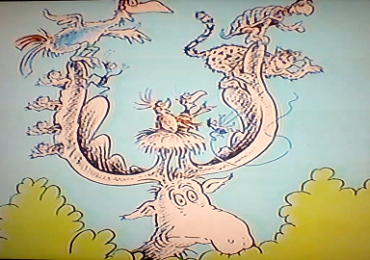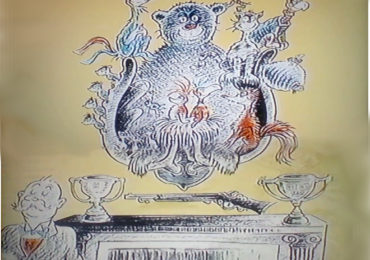By Dr. Patrick Slattery — I spend a lot of time thinking about the situation facing white people in America and around the world. It’s pretty dire. We built up societies utilizing technology and social structures that allowed our people to lead pretty comfortable and potentially meaningful lives, at least compared to any other time or place in history. There was a certain amount of outside contribution to the technology and social structures, but for the most part they were developed by white people. Some will say that whites exploited others in the development of our societies, and there is some truth in that, but whites also contributed hugely to the betterment of the lives of people all over the world. On balance, we have no reason to apologize.
Other societies have tried to adopt our technology and social structures, but only a small handful in east Asia have really been successful. For the residents of the rest of these countries, the ticket to a better life often seems to be transplanting themselves to a white country. Many individual immigrants do well for themselves and may be seen as contributing to their new countries, but as groups the immigrants tend to be tremendous burdens, and ungrateful ones at that.
In the most recent Stormfront Radio show, I proposed three future scenarios. 1) a continuation of Jewish rule, resulting in the eventual replacement of whites as the majority population in our countries, which will decay into dysfunctional societies where whites are a mistreated minority (modern South Africa comes to mind). 2) the triumph of Trumpism, where the constitutional order will be maintained and Jewish power will be pushed back enough to halt large-scale immigration and at least considerably slow down and limit the transformation of our demographics and culture (something along the lines of Putin’s Russia), or 3) a hard fascist backlash where whites abandon constitutional constraints and their traditional social morality and place the top priority on ethnic survival (as Hitler’s Germany unsuccessfully attempted).
After the show, suddenly the image of Dr. Seuss’s “Thidwick the Big-Hearted Moose” came to mind.

When a small beetle asked the moose if he could hitch a ride on his antlers, Thidwick said “sure,” as the beetle’s presence was too insignificant to adversely impact his activities. But the beetle invited a spider, who invited a bird, who built a nest and brought his wife, who invited a woodpecker who drilled holes that became homes for squirrels, and so on and so forth until an entire menagerie burdened his antlers to the point that his ability to survive was put to the test.
Of course, at any point along the way, Thidwick could have refused and gotten rid of the pests, but he was afraid of being called a bad host. He continued to tolerate them, and even recognized their property rights in his antlers because they had become homes to his pests. This really seem reminiscent of the chain immigration that 1965 immigration act made possible. Quite clairvoyant, as Thidwick was written in 1948.
Towards the end of the book, Thidwick is faced with the seasonal scarcity of moose moss on the north side of the lake and decides to swim across the lake to where his food source will be in greater supply. The pests object, because they feel at home on the north side of the lake and seem oblivious to the fact that their livelihoods are dependent on the well being of their host moose. They propose settling the question democratically. By now their numbers have been bolstered by a bobcat, a turtle, three mice, a fox, a bear, and 362 bees, and Thidwick is defeated in a landslide.
Thidwick seems resigned to accepting his eventual demise by starvation when a more immediate existential threat presents itself: hunters. Suddenly Thidwick goes hard fascist and saves himself without concern for the pests. He quickly remembers he can shed his antlers and swims off to the other side of the lake, leaving his antler-dwelling pests to face the hunters alone. Thidwick lives happily ever after with other moose. What happens to his multi-cultural freeloaders?

“His old horns today are where you knew they would be. His guests are still on them, all stuffed, as they should be.”
Yes, Thidwick, and Dr. Seuss by extension, let them all get killed. A happy ending? That was the intention.
So was Dr. Seuss full on Nazi? Contrary to what many think, he (his real name was Theodore Seuss Geisel) was ethnic German and not Jewish. On the other hand, he wrote plenty of books that had a liberal message regarding integration, the Holocaust, Hitler, and whatnot. But really, who cares what Dr. Seuss thought. The point is that we are a moose with a bunch of pests living in our antlers. What do we do about it?
We don’t need to wait till the very last minute to deal with our burden. Thidwick could have refused to allow the pests to board his antlers. He could have demand that those who misbehave leave. He could have demanded they pay their fair share of rent. If you look at the antlers as a metaphor for the constitutional society, there were things Thidwick could have done short of abandoning his antlers, an option that would still remain in his back pocket as a last resort. But he did nothing until faced with immediate doom.
Getting back to my three scenarios, I hear many calling for fascism now. Given that countless people in “polite society” are open communists of one sort or another, I see nothing wrong with de-stigmatizing fascism. But realistically our people are a long, long way from embracing fascism. Trumpism, on the other hand, with its roots in the elimination of political correctness, could open the way for an awakening that would overturn Jewish domination of our society. Free from Jewish domination, solutions to our problems possibly could be found without resorting to the violence and dislocation that would likely accompany an abandonment of the constitutional order. This depends to a large extent on what we do. If one thing has become clear in the past five months, it is that Trump provides us with political space, but not political leadership. The fate of Trumpism is in our hands, not his.
If Trumpism fails, we still have scenario three in our back pocket, and potentially could have laid considerable groundwork for an new society. But scenario three is fraught with danger. It didn’t turn out so well for Hitler and Germany.





